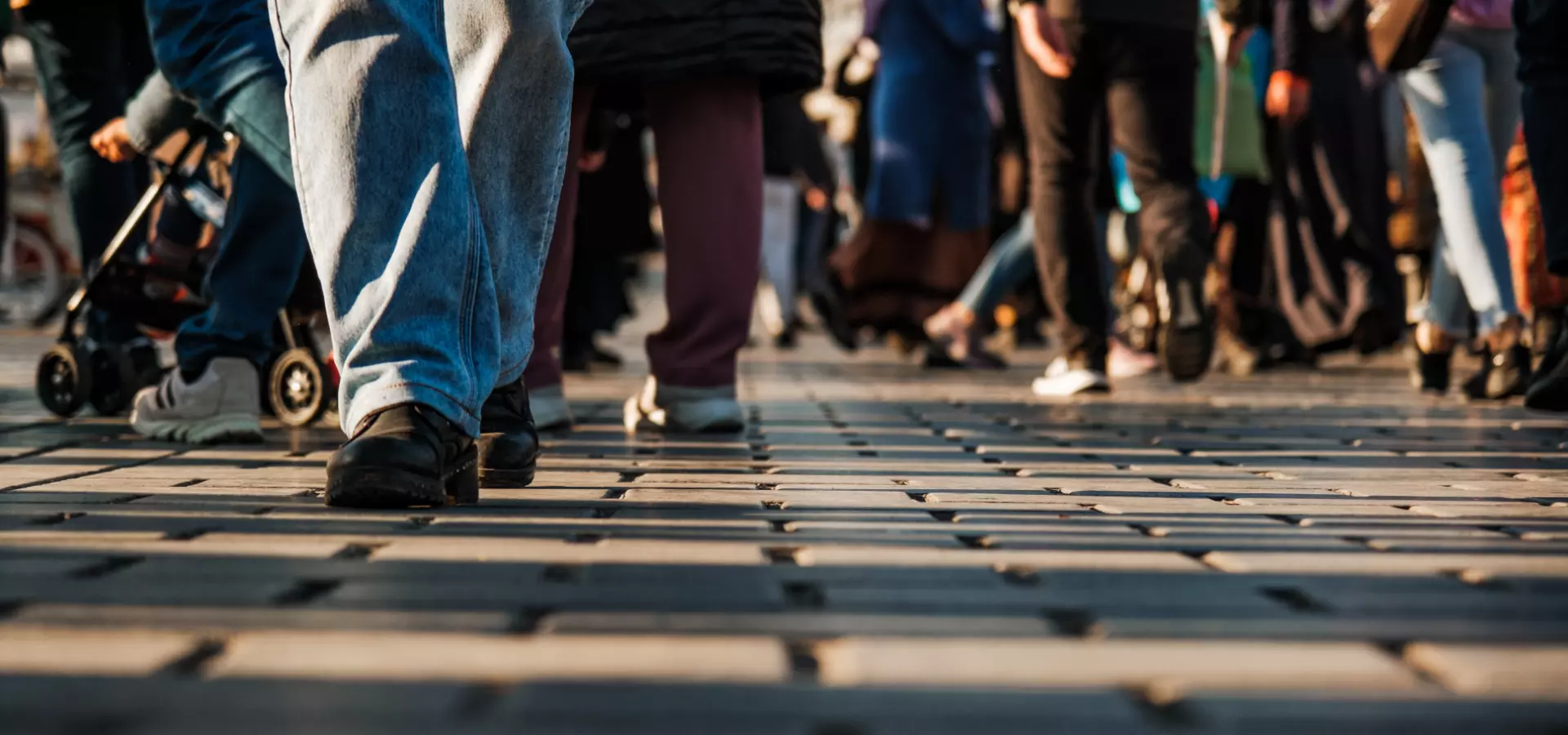
Women have a right to the city
Cities designed for men, by men
How we use and design public space plays a crucial part in responding to violence in all forms. For far too long, decisions - largely made by cis white men - on issues like planning and public transport have negatively impacted how women and non-binary people experience their city.
A large amount of academic research has shown us that cities are typically designed by men for men, and the city planner’s ‘neutral’ resident is quietly assumed to be male. But what Young Women Lead concluded from our research was that an intersectional feminist town planning approach can make our cities better for everyone who lives and works in them.
Feeling safe in public spaces
We engaged with over 600 women and non-binary people about their experiences of public space in Glasgow and, unsurprisingly, safety in public spaces was a common thread found among our survey responses. It is a subject often discussed but almost always short on meaningful action. Lack of sufficient data is often used to justify inaction. Young Women Lead’s research aims to fill this data gap and move Glasgow City Council, Greater Glasgow Police and community partners to act to prioritise women and non-binary people’s safety and engagement in public spaces.
Our report highlights that -
- 95% felt unsafe visiting parks at night
- 70% don’t always feel safe when they are waiting for public transport
- 67% often felt unsafe or uncomfortable on buses.
Put simply, a large majority of people we spoke to felt unsafe in parts of Glasgow’s public spaces and on public transport. This impacts on women and non-binary people specifically because current power structures and planning arrangements are historically based on patriarchal ideas of how the city should work. We need to start looking at planning and transport through a feminist lens if we want to realise our right to the city.
Redesigning spaces to suit all
Some of our recommendations are simple but could be hugely effective, like better pathway maintenance and lighting infrastructure within our streets and parks. Campaigns like Light the Way and Reclaim the Night have really paved the way on highlighting these issues and should be applauded for their hard work in pushing this to the top of the council’s agenda. The city has never had a specific lights policy for their parks and this would certainly be a first step that would be welcomed by campaigners.
In terms of public transport, Glasgow lags behind many European cities with ticket flexibility and our transport system is so badly connected that women and non-binary people told us it limits their opportunities to socialise, work and care for people. Glasgow needs a multi-modal ticketing structure to complement the diverse needs of the population, instead of catering to just the 9-5 city centre worker. Like many of the suggestions made in the report, this would benefit the most marginalised people in our city, ensuring true equity and liberation for all.
We need clearer pathways to report harassment on and off public transport and more evening transport services. Respondents to our survey shared horrific experiences of sexual harassment and homophobic attacks and Young Women Lead have recommended that by working together with bus companies, bus drivers and their trade unions, we can make buses safer for all.
As well as interventions made by the city council, we also need a shift in perception - women must be able to freely occupy public space without fear. Women have a right to the city, but as it stands, we are socialised not to take up space, to adapt our behaviour due to our socially conditioned vulnerability. The familiar conundrum of should I take that taxi home versus walking a well-lit route is far too common a question we ask ourselves. But let's face it, either way women are blamed or made to feel guilty for causing the problem, when largely it starts with men’s actions or inaction.
We know all too well that lighting up our streets and parks and enhancing bus services won’t stop violence all on its own. Pairing this with education and calling out bad behaviour needs to be part of the call to action. High quality consent-based relationship and sex education, training and information campaigns are crucial to tackling the issue at its root: sexist language and behaviour.
My hope is that Glasgow finally gets serious about progressing our city into a place that is truly greener and fairer for everyone, so that women and non-binary people can not only exist, but flourish, in a city that is designed by them and for them.
Read the first blog in this series on gender inequalities.
Read the third blog: Women’s public safety is a health issue
Read the fourth blog: Systemic failures contributing to gender inequality
Read the fifth blog: Gender inequalities and intersectionality
The views expressed in this guest blog are those of the author and do not necessarily represent the views of GCPH.